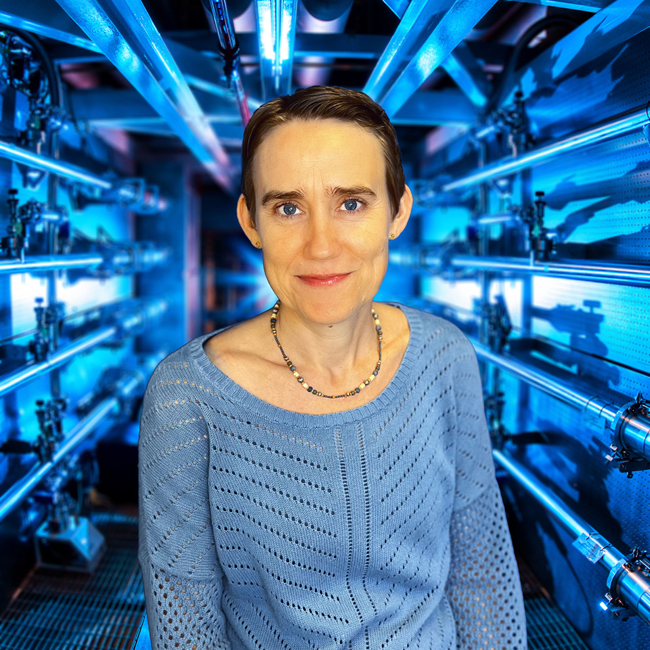MIPSE Seminar
Using High Energy Density Plasmas for Nuclear Experiments Relevant to Nuclear Astrophysics
This event is free and open to the publicAdd to Google Calendar

Abstract:
Thermonuclear reaction rates and nuclear processes have traditionally been explored by means of accelerator experiments, which are difficult to execute at conditions relevant to stellar or big bang nucleosynthesis. High energy density (HED) plasmas generated using lasers, such as the inertial confinement fusion (ICF) platforms at the NIF and OMEGA facilities, more closely mimic astrophysical environments in several ways. These include thermal distributions of reacting ions as opposed to mono-energetic ions impinging on a cold target; stellar-relevant plasma temperatures and densities; and neutron flux densities not found elsewhere on earth. This talk will present some initial nuclear astrophysics-relevant results for the T+T and solar 3He+3He reactions using this platform to illustrate the possibilities, and describe efforts to study the 3He+3He reaction at stellar-relevant conditions at NIF and with unprecedented data quality at OMEGA. Future directions, including platform developments to study CNO-cycle-relevant reactions including higher Z ions, neutron capture on nuclei in excited states and electron screening will also be discussed. The work was supported in part by the US DOE, LLE, and LLNL.
About the Speaker:
Dr. Maria Gatu Johnson is a principal research scientist at the MIT Plasma Science and Fusion Center, where she develops and uses nuclear diagnostics to diagnose inertial confinement fusion (ICF) experiments. In particular, she has focused her efforts on working to understand stagnation physics in ICF implosions, helping guide the ICF program at the National Ignition Facility (NIF) to ignition and energy gain and the program at the OMEGA laser facility to record yields. Another primary focus of her work is plasma nuclear science-relevant basic-science experiments at OMEGA and the NIF. She also manages an accelerator laboratory at MIT dedicated to diagnostic development for ICF and high energy density physics (HEDP) experiments. She obtained her PhD from Uppsala University, Sweden, in 2010, working on neutron di-agnostics for the JET tokamak. She is the recipient of awards including the 2019 Katherine E Weimer Award, and is a Fellow of the American Physical Society. She is proud to be an APS DPP Ally since 2019.
This is a hybrid event. For Zoom link, please see MIPSE website:
https://mipse.umich.edu/seminars_2324.php#winter2024
 MENU
MENU 
